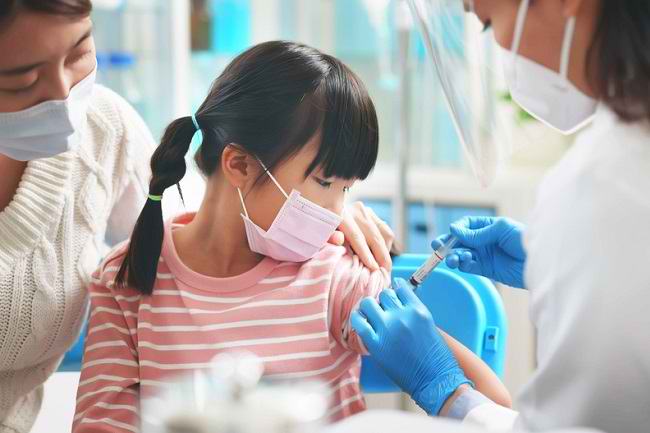The cause of cervical cancer has not been determined, but this condition is formed when cells in the cervix or cervix develop into malignant. Cervical cancerclosely related to infection human papillomavirus (HPV). In addition, the emergence of this cancer is also associated with heredity and sexually transmitted diseases.
According to data from the World Health Organization or WHO, cervical cancer or cervical cancer is the fourth most common type of cancer in women. In Indonesia, cervical cancer is the second most common type of cancer in women, after breast cancer.

Given that this disease is very deadly, every woman needs to know what risk factors can make her more susceptible to cervical cancer. This is important to prevent the appearance of cervical cancer.
Conditions That Can Cause Cervical Cancer
The cause of cervical cancer is not known with certainty. However, there are a number of factors that can increase a person's risk of developing this disease. Among others are:
1. Infection human papillomavirus (HPV)
Almost all cases of cervical cancer are caused by infection with the HPV virus. This virus can infect cells on the surface of the skin and genitals, anus, and mouth and throat. A woman can be infected with HPV from risky sexual behavior. For example, frequently changing sexual partners from a young age, or having sex without a condom.
2. Suffering from sexually transmitted diseases
Several studies have shown that the risk of cervical cancer is higher for women who have had sexually transmitted diseases, such as genital warts, chlamydia, gonorrhea, and syphilis.
Women who are suffering from sexually transmitted diseases also have a high risk of cervical cancer. This is because HPV infection can occur together with sexually transmitted diseases.
3. Unhealthy lifestyle
Women who are overweight and rarely eat fruit and vegetables are thought to be at high risk of cervical cancer. This risk will increase if the woman also has a smoking habit.
Chemicals in tobacco are believed to damage DNA cells and cause cervical cancer. Not only that, smoking also makes the immune system weaker, making it less effective in fighting HPV infection.
4. Weak immune system
Women whose immune systems are weakened, for example due to HIV/AIDS or undergoing treatment to suppress the immune system, such as cancer treatment and autoimmune diseases, are more at risk for infection with HPV, which is the cause of cervical cancer.
5. Using birth control pills
A number of studies have shown that the use of oral contraceptives (birth control pills) in a long time can increase the risk of cervical cancer. As a safer alternative to preventing cervical cancer, choose another method of contraception, such as the IUD or spiral birth control.
To choose the right type of contraception and suitable, you should consult a gynecologist further.
6. Pregnant at a young age and pregnantI've been pregnant and gave birth several times
Conceiving for the first time at the age of less than 17 years can make a woman more susceptible to cervical cancer. Women who have been pregnant and have given birth more than 3 times are also thought to be more at risk of cervical cancer.
According to research, a weakened immune system and hormonal changes during pregnancy can make women more susceptible to HPV infection.
7. Have you ever consumed diethylstilbestrol (DES)
DES is a hormonal drug given to women to prevent miscarriage. Pregnant women who take this drug have a greater risk of developing cervical cancer. This drug may also increase the risk of cervical cancer in the female fetus she is carrying.
8. Hereditary factors
A woman has a higher risk for cervical cancer, if there is a woman's family who has been diagnosed with a similar disease. It is not known for sure what underlies this, but it is thought to be related to genetic factors.
To reduce the risk of cervical cancer, you need to apply a healthy lifestyle in your daily life and stay away from risky sexual behavior. Don't forget to also get an HPV vaccination to prevent cervical cancer, as well as undergo screening or early detection of cervical cancer with a Pap smear or IVA test.
This preventive step can be done when consulting a doctor. All these preventive steps are important because cervical cancer generally does not cause symptoms at an early stage and only appears when the cancer enters an advanced stage.









